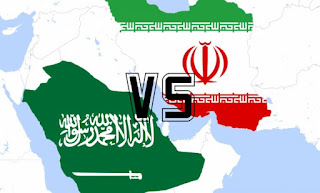News agencies wrote that the hackers were “outside of Iran” but little
else was known about them. Some websites speculated that either the
conducted the attack. The low-level attack, which was followed by two
attacks on Saudi Arabian statistical websites May 26, raised the
question in Iranian media whether Saudi-Iranian cyber wars have begun.
In an articled headlined “The announcement of a
cyberwar by Saudi Arabia against
Iran?” Tabnak News agency wrote, “While many websites assumed this
website was hacked by [IS] … it appears it is a Saudi hacker group.”
Tabnak rejected the idea of IS involvement because the hackers referred
to themselves as “Da۳s,” as in “Daesh,” an acronym the terrorist group
does not use for itself. A Twitter account associated with Da۳s
hackers followed a few well-known Saudi accounts, and Tabnak concluded
that a Saudi group had conducted the attack with government backing. In
any case, the screenshots provided of the hacked website appear to show
that the hackers either wanted Iran to know that they were Saudi or that
they intended to make it appear that they were.
An article in the Iran newspaper run by the Hassan Rouhani
administration, perhaps in an attempt to downplay the speculation and
tensions, reported that a source in the Statistical Center of Iran
denied that its website was hacked at all. The official called the
problems with the site “a
natural issue
with no relation to [IS] or other individuals.” The official added, “We
should not open this small issue so wide that it creates rumors in the
country.” The official also urged Iranians to not fan the flames of
rumors.
Tasnim News Agency reported May 26 that two Saudi statistical
websites were hacked
just one day after Iran’s statistics center was hacked. According to
the article, no one had taken responsibility for the hacking, but some
social media users speculated that the attacks on the Saudi statistical
websites were revenge attacks for the hacking of Iranian statistical
websites. In a special report May 25 headlined “Saudi Arabia’s
cyberwar against Iran,
what is Iran’s cyber army’s response?” Tasnim wrote that the hacker
group Da۳s also put an image of former Iraqi President Saddam Hussein on
Iran’s statistical website, concluding that the hackers therefore are
likely linked to Baathists or takfiri groups. Tasnim reported that Gen.
Gholam Reza Jalali,
who heads a military unit in charge of combating sabotage, had warned
that Saudi Arabia intended to conduct cyberattacks against Iran, though
few paid attention to his warnings. Jalali said cyberattacks will be the
prime threat to Iran’s security this year.
Tasnim wrote that the attack on Iran’s statistical center can be
considered the “first bullet in the beginning of a cyberwar.” However,
this may not have been the first bullet. According to US officials, Iran
was behind the
cyberattack on Saudi Aramco in 2012. In 2015, Saudi Arabia’s Oil Ministry website was hacked by a group claiming to be Iranians.
Iran itself has been the victim of cyberattacks. The United States was behind an attack on Iran’s
nuclear facility in Natanz, using a computer worm called Stuxnet, unique for its ability to cause physical damage.

Комментариев нет:
Отправить комментарий